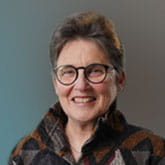Physician burnout is a growing problem in the United States. In fact, burnout is now a legitimate medical diagnosis, according to the International Classification of Diseases (ICD-11), and appears under “problems related to employment or unemployment.”
The following symptoms support the diagnosis:
- Feelings of energy depletion or exhaustion.
- Increased mental distance from one’s job, or feelings of negativism or cynicism related to one’s job.
- Reduced professional efficacy.
A recent article in the Annals of Internal Medicine aimed to estimate the attributable cost of physician burnout in the U.S. by calculating the financial burden imposed on the healthcare system by physician burnout and the resulting physician turnover and reduction of worked clinical hours. The authors hypothesized that if they could show physician burnout’s true financial consequences, it would support healthcare system funding of interventions to reduce physician burnout.
The authors created a mathematical model they applied to a simulated population of U.S. physicians. The model found that burnout accounts for approximately $4.6 billion in costs related to physician turnover and reduced clinical hours each year in the U.S. At an organizational level, the authors assessed the cost at approximately $7,600 per provider annually. These numbers are very significant, especially since they reflect only the financial impact of burnout. It is also important to consider the significant personal physician and patient impact such as depression, frustration, disrupted relationships and reduced quality of care.
Clearly physician burnout is multifactorial, including volume-based payment models, rising patient consumerism and loss of independence in a consolidating healthcare system. Many feel the transition to electronic health records (EHRs) played a central role in physician burnout, pointing to negative impacts on the doctor-patient relationship and inefficient and burdensome digital workflows.
The Annals article observed there was “substantial economic value for policy and organizational expenditure for burnout reduction programs for physicians.” One way to do this is investing in EHR optimization, which evaluates and aligns a practice’s clinical and digital workflows. Optimization includes taking advantage of current EHR updates and upgrades, and incorporates real-life experience from the clinical teams actually using the EHR. This results in more efficient, streamlined workflows, shedding many suboptimal patterns developed when the EHR was first implemented. Many of our NextGen Healthcare clients first implemented their electronic workflows years ago, and it has been gratifying to watch the benefits and improvement to their practices after undergoing EHR optimization. In this regard, optimization is proving to be an effective antidote to physician burnout.
Meet NextGen Ambient Assist, your new AI ally that generates a structured SOAP note in seconds from listening to the natural patient/provider conversation.
Read Now
